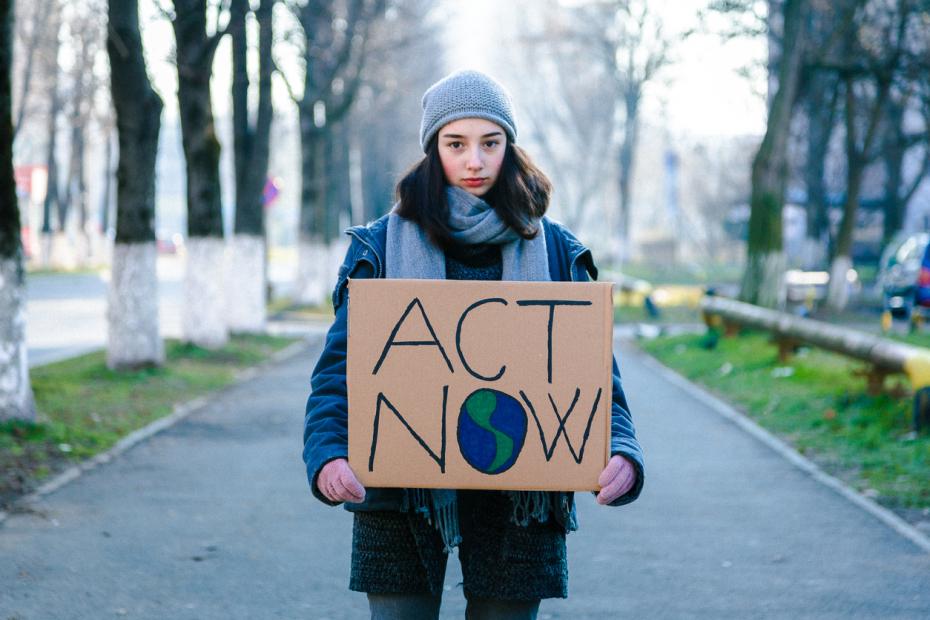In an era where environmental sustainability is paramount, engaging students in meaningful and practical ways is crucial. Sixty per cent of all university students want to learn about sustainability, according to research – but how do you cut through all the noise?
Sport and Loughborough go hand in hand: you can’t talk about the university without talking about sport. This was an opportunity, and it made sense to tie sustainability into something that already had a seat at the top table. Our students were already hooked on sport, with over 6,500 athletes across 61 different sports competing every week.
- Students as climate champions: a road map for universities
- Three ways universities can enhance teacher engagement with the Sustainable Development Goals
- Why visible senior leadership in sustainability matters
From this, the Climate Cup was developed: a student engagement programme where our Athletic Union clubs compete to be the most sustainable. It’s all about using the power of sport to tackle the climate crisis and restore nature. This initiative was developed and delivered in partnership with Carbon Jacked.
A central part of the Climate Cup focuses on the following four areas: climate action, improving connections with nature, waste and pollution, and voice – communicating to spread awareness about what the team’s been doing.
Here’s how universities can turn their students into climate champions.
Integrate sustainability into activities or hobbies students are already engaged in
One of the key successes of the Climate Cup is its integration of sustainability into student sport activities. Through the programme, we have supported the clubs to conduct carbon footprint assessments and identify actions and opportunities to reduce their impact. The programme empowers clubs to identify meaningful actions within the context of their specific sport.
Make it personal
We have found that once students understand how climate change will impact the things they love, like their ability to participate in sport, they are more likely to do something about it. Through this programme, we have run live sessions and shared content on sport and climate change with all our AU clubs. This has led to significant engagement with the programme (65 per cent of teams signing up) and the clubs implementing some innovative ideas.
Leverage the power of competition
The Climate Cup harnesses the competitive spirit of university sports clubs to drive sustainability. By organising a competition where clubs vie to be the most sustainable, students are motivated to take tangible actions. This competitive element not only makes sustainability efforts more engaging, but also fosters a sense of community and shared purpose. We incentivised attendance to some of our events or sessions by rewarding bonus points in the Climate Cup league ranking.
Use the power of technology for engagement
The Carbon Jacked Platform has been instrumental in the success of the Climate Cup. This platform helps students understand sustainability, get out into nature and rewild the world. It offers live sessions on sport and sustainability, careers and well-being, making learning interactive and accessible.
Promote hands-on environmental activities
Getting students out into nature is a cornerstone of the Climate Cup. Clubs have organised activities like river trail clean-ups, with over 50 students attending, and volunteering in nature with activities such as tree planting. This not only improves the environment but also enhance students’ well-being.
These hands-on experiences foster a deeper connection to nature and a stronger commitment to sustainability.
Some examples of what our teams have done:
- Mountaineering Club organised tree planting in the Peak District where they spend a lot of their time climbing
- Karting held their races at e-karting venues
- Sailing & Windsurfing moved to plant-based cleaning products for their boats to reduce chemical run-off into the water
- Lboro Athletics partnered with JOGON and ran a kit and show donation day
- Men’s Hockey travelled by train for some of their fixtures, rather than drive
Turning students into climate champions requires a multifaceted approach that combines competition, empowerment, integration into daily activities and technology. By harnessing something students already engage with, we have been able to show the impact on their sports and this has led to positive actions.
Participants overwhelmingly find the project valuable and engaging, with many agreeing that it inspired improved club sustainability and increased awareness of the university’s sustainability efforts. 100 per cent of participants have stated that the project is more engaging than a typical sustainability initiative.
If we can upskill these students through sport, the butterfly effect when they leave and go on to play, coach or spectate across grassroots to elite-level sport is massive.
By adopting these strategies, universities can empower their students to lead the way in sustainability, creating a healthier planet for all.
Elliott Brown is sustainability manager at Loughborough University.
If you would like advice and insight from academics and university staff delivered direct to your inbox each week, sign up for the Campus newsletter.




comment